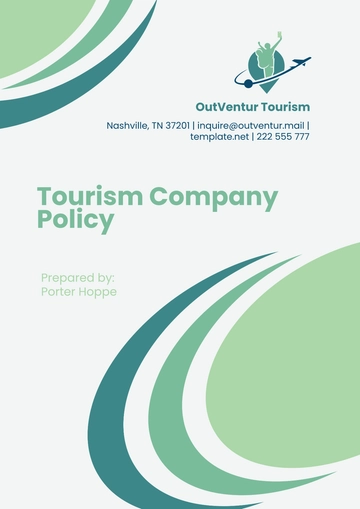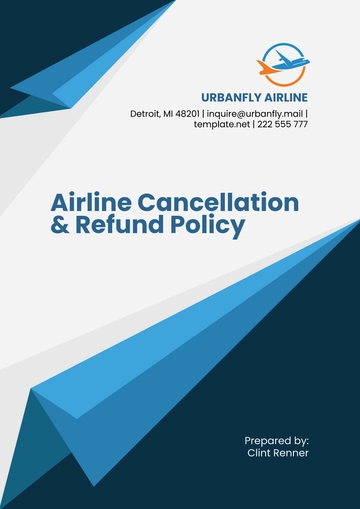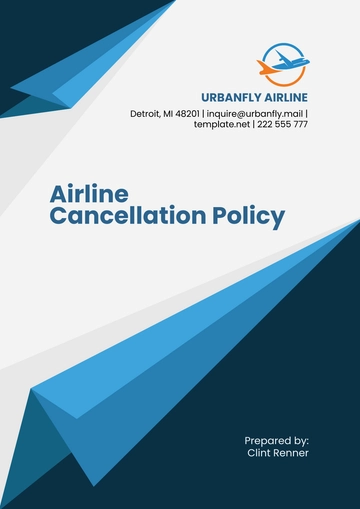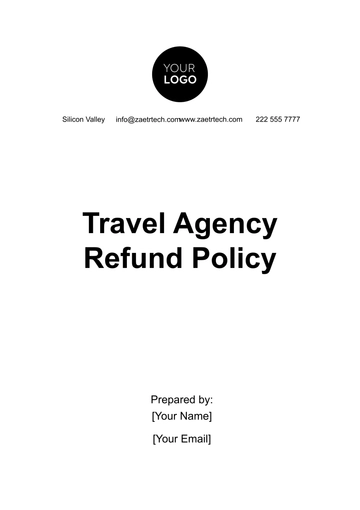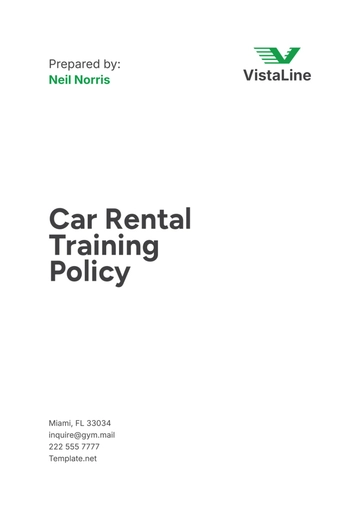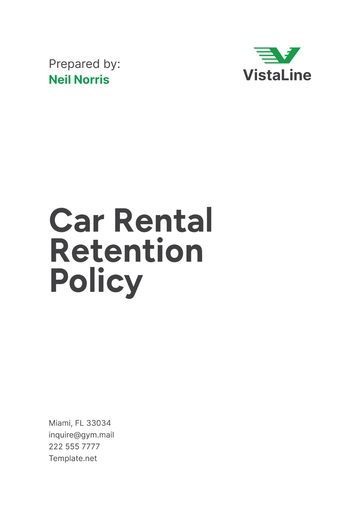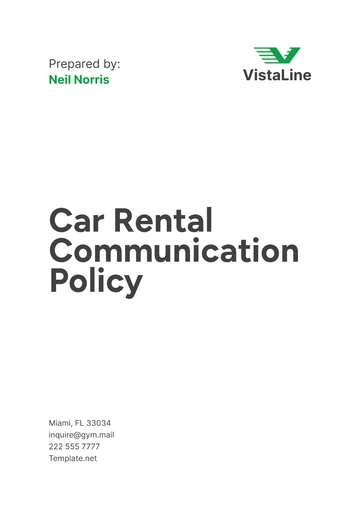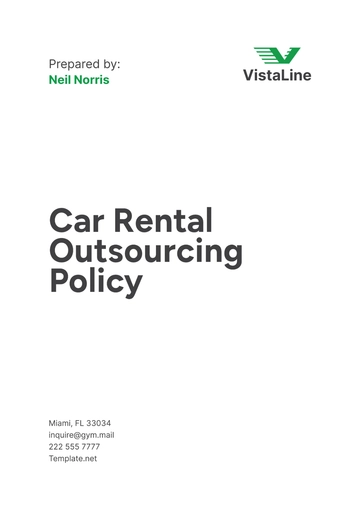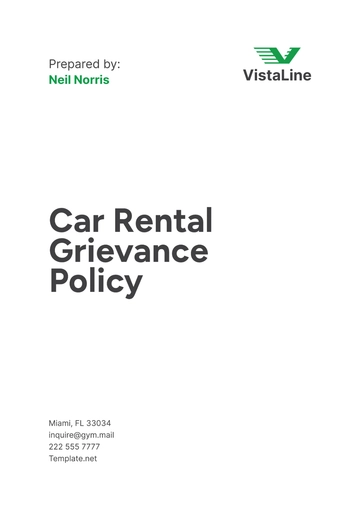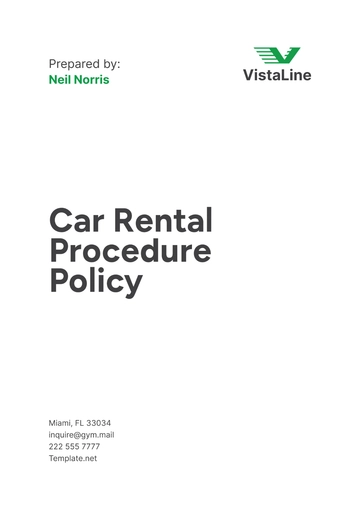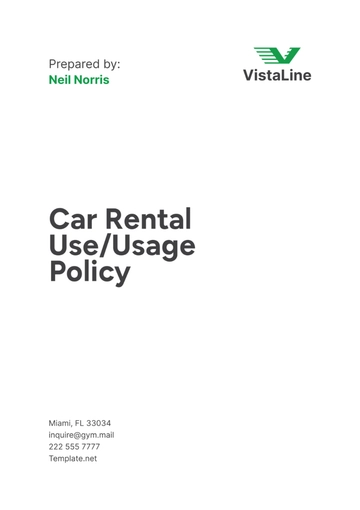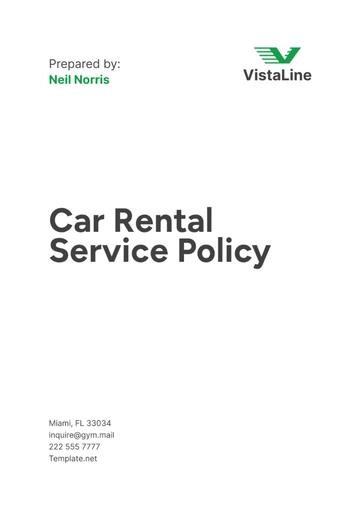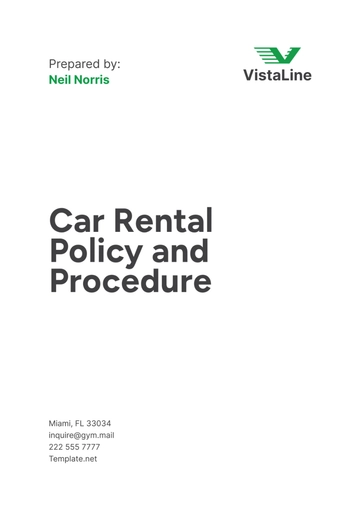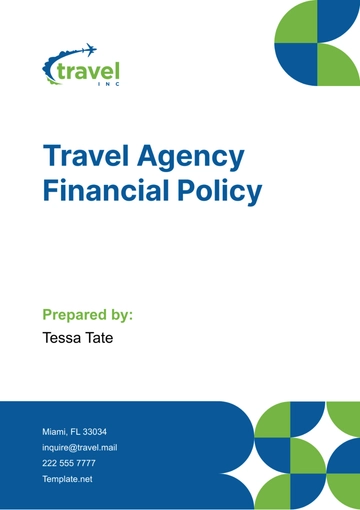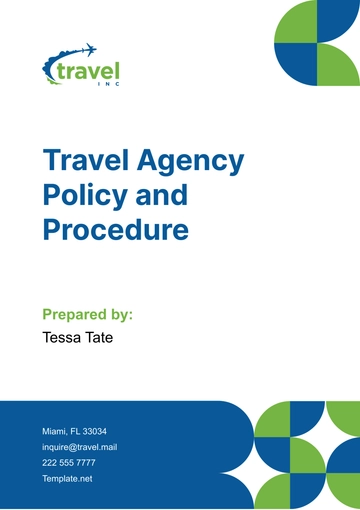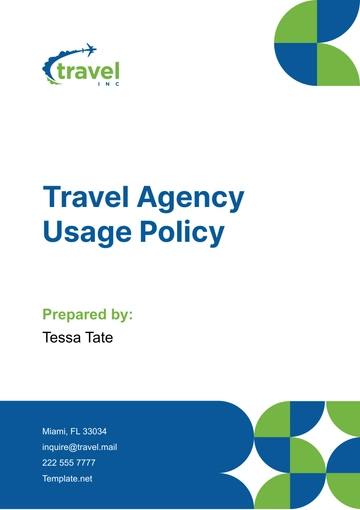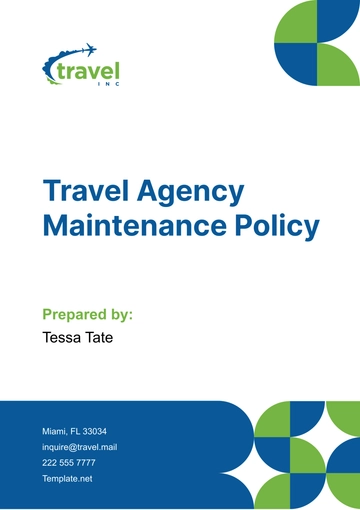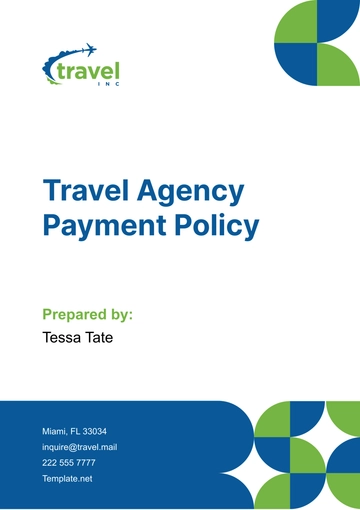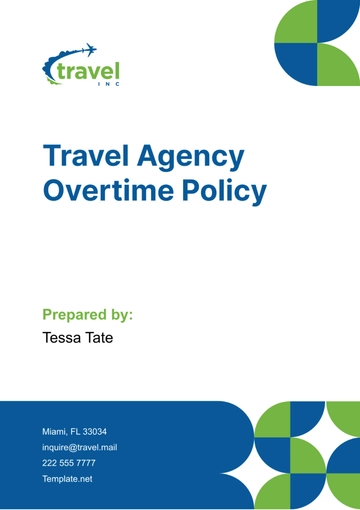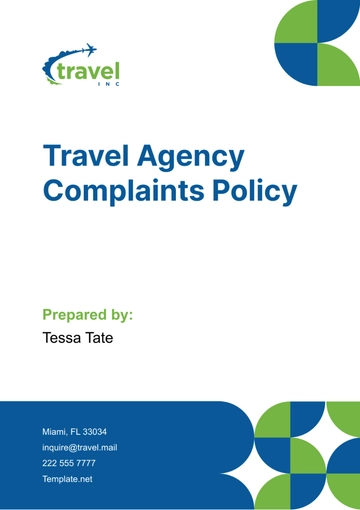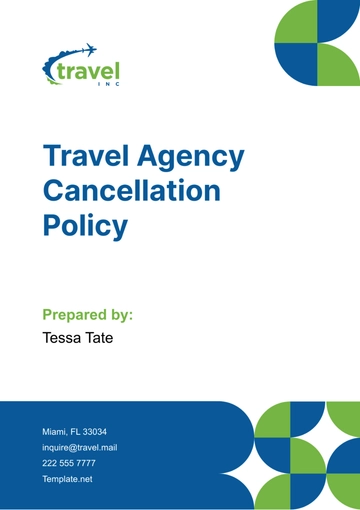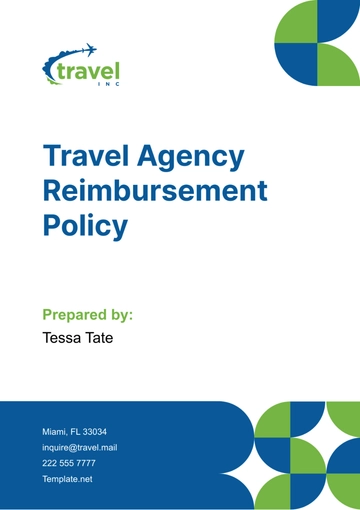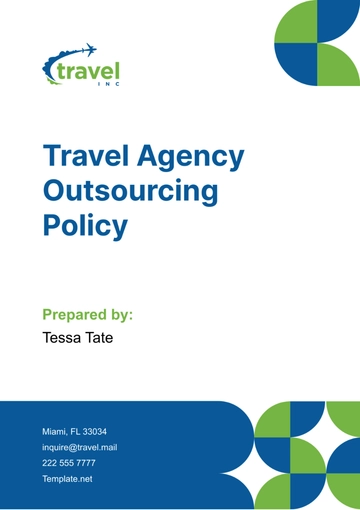Free Travel Agency Outsourcing Policy
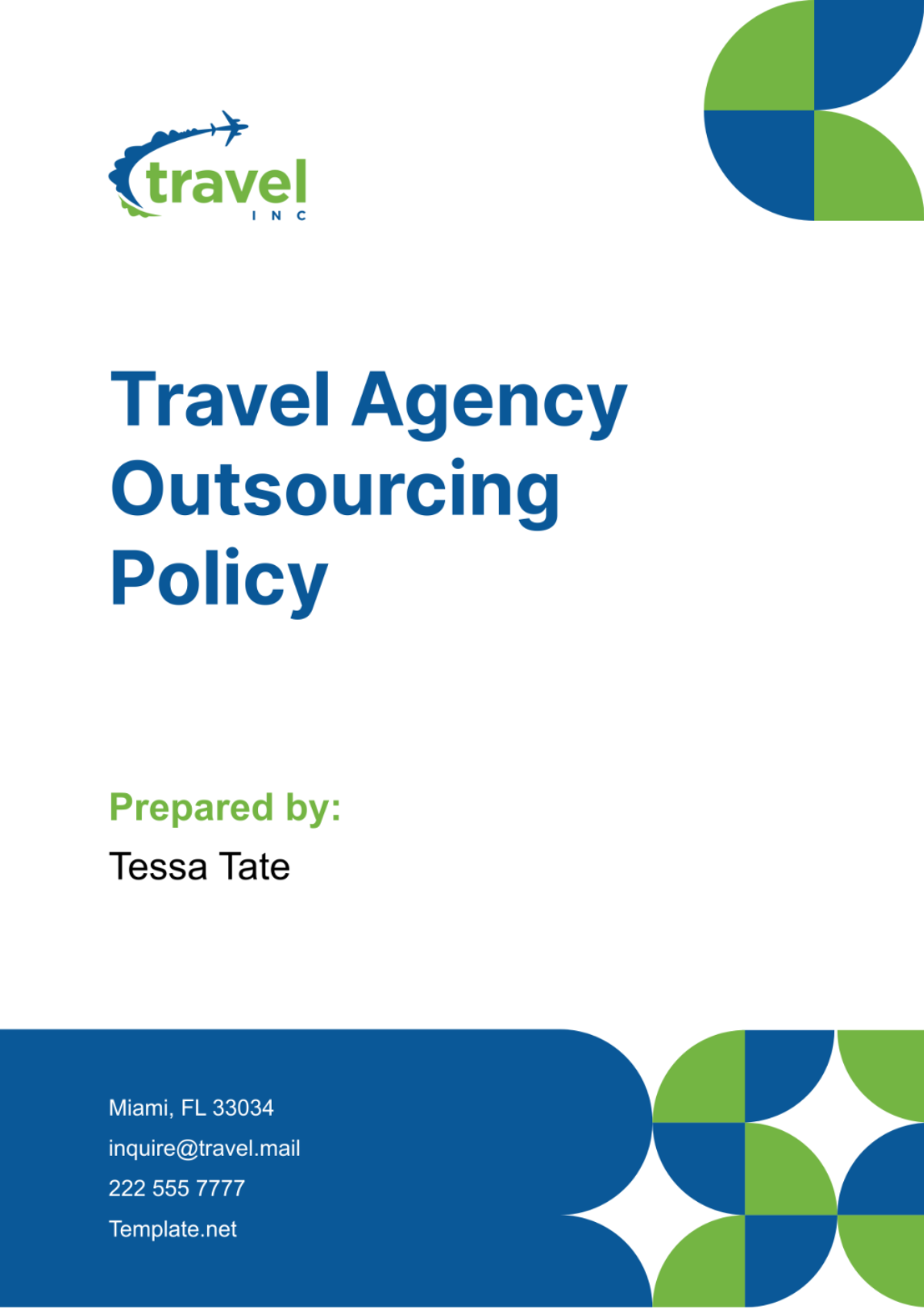
I. Introduction
A. Purpose of the Policy
The purpose of this policy is to establish guidelines and procedures for the outsourcing of certain functions and services by [Your Company Name]. By formalizing the outsourcing process, we aim to enhance operational efficiency, leverage external expertise, and optimize resource allocation while maintaining the highest standards of service quality and compliance.
B. Scope of the Policy
This policy applies to all outsourcing activities undertaken by [Your Company Name], including vendor selection, contract negotiation, performance monitoring, and compliance management. It encompasses both domestic and international outsourcing arrangements and applies to all departments and business units within the organization.
C. Definitions of Key Terms
Outsourcing: The delegation of specific functions or services to third-party vendors or partners, typically to achieve cost savings or access specialized skills.
Vendor: Any external entity contracted by [Your Company Name] to provide outsourced services.
Service Level Agreement (SLA): A formal agreement that defines the expected service levels, performance metrics, and responsibilities of both parties involved in the outsourcing arrangement.
Compliance: The adherence to relevant laws, regulations, industry standards, and internal policies governing outsourcing activities.
II. Vendor Selection Process
A. Criteria for Selecting Vendors
Reputation and Experience: Vendors must demonstrate a proven track record of reliability, professionalism, and industry expertise in delivering similar services to reputable clients.
Capability and Resources: [Your Company Name] will assess vendors' capabilities, including infrastructure, technology, human resources, and scalability to ensure they can meet our current and future needs.
Pricing and Cost-effectiveness: While cost is a factor, quality and value for money will be prioritized to ensure that cost savings do not compromise service excellence.
Compliance and Regulatory Requirements: Vendors must comply with all relevant laws, regulations, and industry standards, including data protection regulations, consumer rights laws, and industry certifications.
B. Vendor Evaluation and Due Diligence
Screening Process: Prospective vendors will undergo a comprehensive screening process, including background checks, review of certifications, and assessment of reputation and client feedback.
Reference Checks: [Your Company Name] will conduct reference checks with past clients or partners to evaluate vendors' performance, reliability, and adherence to SLAs.
Financial Stability Assessment: Financial stability checks will be conducted to ensure vendors have the financial capacity to fulfill their contractual obligations and sustain long-term partnerships.
Legal and Compliance Review: Legal advisors will review vendor contracts and agreements to ensure they comply with relevant legal and regulatory requirements and mitigate legal risks for [Your Company Name].
III. Scope of Outsourced Services
A. Definition of Outsourced Functions
Outsourced functions refer to specific tasks, processes, or services that are delegated to external vendors or partners rather than being performed in-house by [Your Company Name] staff. These may include customer service, IT support, marketing, accounting, or administrative tasks.
B. Services Eligible for Outsourcing
Services eligible for outsourcing may vary depending on factors such as complexity, cost, resource availability, and strategic importance to the organization. Eligible services typically include non-core functions that can be performed more efficiently or cost-effectively by specialized external providers.
C. Services Excluded from Outsourcing
Critical functions directly impacting core business operations, proprietary information, or customer data may be excluded from outsourcing to maintain control, confidentiality, and quality standards. Additionally, services involving significant regulatory compliance requirements or strategic decision-making may not be suitable for outsourcing.
D. Decision-making Process for Outsourcing
Decisions regarding outsourcing will be based on a comprehensive analysis of various factors, including cost-benefit considerations, service quality, risk assessment, strategic alignment, and legal and regulatory compliance. All outsourcing decisions will be made in accordance with [Your Company Name]'s strategic objectives and values, with approval from relevant stakeholders and executive management.
IV. Contractual Agreements
A. Formal Contract Requirements
Service Level Agreements (SLAs): Contracts with vendors will include detailed SLAs outlining performance standards, metrics, response times, and dispute resolution procedures to ensure accountability and alignment with [Your Company Name]'s service expectations.
Confidentiality and Non-disclosure Agreements: Vendors will be required to sign confidentiality agreements to protect sensitive information shared during the course of the outsourcing relationship.
Data Security and Protection Measures: Contracts will stipulate data security and protection measures to safeguard [Your Company Name]'s proprietary information and ensure compliance with data privacy regulations.
Termination and Renewal Provisions: Contracts will include provisions for termination, renewal, and exit strategies to facilitate smooth transitions and mitigate risks associated with vendor changes.
V. Risk Management
A. Identification of Risks Associated with Outsourcing
Risks associated with outsourcing may include operational disruptions, data breaches, legal and regulatory non-compliance, financial loss, reputational damage, and loss of control over critical functions. A comprehensive risk assessment will be conducted to identify, evaluate, and prioritize potential risks.
B. Risk Mitigation Strategies
Vendor Due Diligence Procedures: Thorough vendor screening, due diligence, and ongoing monitoring will be conducted to mitigate risks related to vendor reliability, capability, and financial stability.
Compliance Monitoring Mechanisms: Regular audits, compliance checks, and performance reviews will be implemented to ensure vendors comply with contractual obligations, legal requirements, and industry standards.
Data Security and Privacy Measures: Robust data security protocols, encryption technologies, access controls, and data breach response plans will be implemented to protect sensitive information and mitigate risks of data breaches.
Contingency and Business Continuity Planning: Contingency plans and business continuity strategies will be developed to address potential disruptions, vendor failures, or unforeseen events that may impact outsourced services.
VI. Monitoring and Performance Evaluation
A. Performance Metrics and Key Performance Indicators (KPIs)
Performance metrics and KPIs will be established to measure vendor performance against agreed-upon service levels, quality standards, responsiveness, and customer satisfaction.
B. Monitoring Mechanisms and Reporting Requirements
Ongoing monitoring, reporting, and performance reviews will be conducted to track vendor performance, identify areas for improvement, and address any deviations from SLAs or contractual obligations.
C. Regular Performance Reviews and Audits
Regular performance reviews, audits, and service assessments will be conducted to evaluate vendor compliance with SLAs, identify trends, address issues, and optimize outsourcing arrangements.
D. Remediation and Corrective Action Procedures
In the event of performance deficiencies or non-compliance, remediation plans and corrective actions will be implemented to address root causes, mitigate risks, and improve vendor performance.
VII. Communication and Collaboration
A. Communication Channels and Protocols
Clear communication channels, protocols, and escalation procedures will be established to facilitate effective collaboration between [Your Company Name] and its vendors. Regular communication will be maintained to ensure alignment, address concerns, and foster a productive working relationship.
B. Escalation Procedures for Issue Resolution
Formal escalation procedures will be implemented to address issues, disputes, or conflicts that arise during the outsourcing relationship. Escalation paths will be clearly defined to ensure timely resolution and minimize disruptions to service delivery.
C. Stakeholder Engagement and Feedback Mechanisms
Stakeholder engagement and feedback mechanisms will be established to solicit input from internal stakeholders, clients, and end-users regarding vendor performance, service quality, and satisfaction levels. Feedback will be used to drive continuous improvement and enhance the outsourcing experience.
D. Coordination with Internal Departments and Teams
Collaboration and coordination with internal departments and teams will be facilitated to ensure alignment of outsourced activities with organizational goals, processes, and priorities. Regular communication and collaboration will promote transparency, accountability, and shared understanding across the organization.
VIII. Compliance and Regulatory Requirements
A. Legal and Regulatory Compliance Obligations
[Your Company Name] is committed to complying with all applicable laws, regulations, industry standards, and contractual obligations governing outsourcing activities. Legal and regulatory compliance will be prioritized to mitigate legal risks and ensure ethical business conduct.
B. Industry Standards and Best Practices
[Your Company Name] will adhere to industry best practices, standards, and guidelines relevant to outsourcing activities, including but not limited to data protection regulations, consumer rights laws, and industry certifications. Continuous monitoring and updates will be implemented to stay abreast of regulatory changes and emerging trends.
C. Training and Awareness Programs for Compliance
Training and awareness programs will be provided to employees involved in outsourcing activities to ensure understanding of legal and regulatory requirements, ethical considerations, and compliance obligations. Regular training sessions, workshops, and resources will be made available to promote a culture of compliance and accountability.
IX. Documentation and Recordkeeping
A. Documentation Requirements for Outsourcing Arrangements
Comprehensive documentation will be maintained for all outsourcing arrangements, including contracts, agreements, SLAs, performance reports, audit findings, and correspondence. Documentation will be organized, indexed, and securely stored to facilitate transparency, accountability, and auditability.
B. Recordkeeping Procedures
Recordkeeping procedures will be established to ensure the accurate and timely capture, retention, and retrieval of relevant documents and records related to outsourcing activities. Records will be maintained in accordance with legal, regulatory, and organizational requirements.
C. Document Retention and Archiving Policies
Document retention and archiving policies will be implemented to define the retention periods, storage locations, and disposal procedures for outsourcing-related documents and records. Archiving protocols will ensure the long-term preservation and accessibility of historical records for reference and audit purposes.
X. Policy Review and Updates
A. Regular Review Schedule
This policy will be subject to regular reviews and updates to ensure its effectiveness, relevance, and alignment with evolving business needs, industry trends, and regulatory requirements. A review schedule will be established to periodically assess the policy's adequacy and make necessary revisions.
B. Process for Policy Amendments and Updates
Proposed amendments or updates to the policy will undergo a formal review process, including stakeholder consultation, legal review, and approval by executive management. Changes will be communicated to relevant stakeholders and incorporated into the policy documentation.
C. Stakeholder Consultation and Approval Process
Stakeholder feedback and input will be solicited during the policy review process to ensure that diverse perspectives, concerns, and requirements are considered. Approval of policy amendments will require consensus among key stakeholders and endorsement by executive management.
XI. Policy Acknowledgment and Training
A. Employee Training on Outsourcing Policy
All employees involved in outsourcing activities will receive comprehensive training on this policy, including its purpose, scope, key provisions, and compliance requirements. Training programs will be tailored to different roles and responsibilities to ensure understanding and adherence to the policy.
B. Policy Acknowledgment and Compliance Certification
Employees will be required to acknowledge receipt and understanding of the outsourcing policy and certify their commitment to comply with its provisions. Acknowledgment forms or compliance certifications will be maintained as part of employee records.
C. Continuous Education and Training Initiatives
Ongoing education and training initiatives will be provided to employees to enhance their knowledge, skills, and awareness of outsourcing best practices, emerging trends, and evolving regulatory requirements. Training materials, resources, and updates will be made available through various channels to support continuous learning and development.
XII. Policy Enforcement and Compliance Monitoring
A. Compliance Monitoring and Enforcement Mechanisms
Compliance with the outsourcing policy will be monitored through regular audits, assessments, and reviews to ensure adherence to contractual obligations, legal requirements, and internal policies. Non-compliance will be addressed through appropriate enforcement mechanisms and corrective actions.
B. Consequences of Non-compliance
Non-compliance with the outsourcing policy may result in disciplinary action, contract termination, financial penalties, reputational damage, or legal consequences, depending on the severity and impact of the violation. Consistent enforcement of consequences will promote accountability and deter future non-compliance.
C. Reporting and Investigation Procedures for Policy Violations
Procedures will be established for reporting suspected policy violations, conducting investigations, and taking appropriate remedial actions. Confidential channels for reporting concerns or whistleblowing will be provided to encourage transparency and accountability.
- 100% Customizable, free editor
- Access 1 Million+ Templates, photo’s & graphics
- Download or share as a template
- Click and replace photos, graphics, text, backgrounds
- Resize, crop, AI write & more
- Access advanced editor
Optimize your travel agency's outsourcing process with the Travel Agency Outsourcing Policy Template from Template.net. This editable and customizable document is designed to streamline vendor selection, contract negotiation, and compliance management. Utilize the AI Editor Tool to tailor the policy to your agency's specific needs and ensure seamless outsourcing operations.
You may also like
- HR Policy
- Restaurant Policy
- Company Policy
- Accounting Policies and Procedures
- Website Policy
- Privacy Policy
- Safety Policy
- School Policy
- IT and Software Policy
- Law Firm Policy
- Construction Policy
- Interior Design Policy
- Travel Agency Policy
- Education Academic Policy
- Security Policy
- Real Estate Policy
- Expense Policy
- Software Policy
